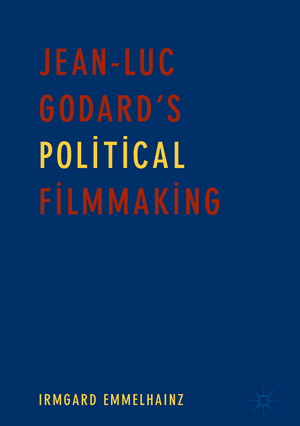Jean-Luc Godard’s Political Filmmaking
Autor Irmgard Emmelhainzen Limba Engleză Hardback – 8 mai 2019
Preț: 731.59 lei
Preț vechi: 892.19 lei
-18% Nou
Puncte Express: 1097
Preț estimativ în valută:
139.99€ • 146.16$ • 115.86£
139.99€ • 146.16$ • 115.86£
Carte tipărită la comandă
Livrare economică 04-18 aprilie
Preluare comenzi: 021 569.72.76
Specificații
ISBN-13: 9783319720944
ISBN-10: 3319720945
Pagini: 345
Ilustrații: IX, 327 p. 3 illus.
Dimensiuni: 148 x 210 x 28 mm
Greutate: 0.56 kg
Ediția:1st ed. 2019
Editura: Springer International Publishing
Colecția Palgrave Macmillan
Locul publicării:Cham, Switzerland
ISBN-10: 3319720945
Pagini: 345
Ilustrații: IX, 327 p. 3 illus.
Dimensiuni: 148 x 210 x 28 mm
Greutate: 0.56 kg
Ediția:1st ed. 2019
Editura: Springer International Publishing
Colecția Palgrave Macmillan
Locul publicării:Cham, Switzerland
Cuprins
1. Introduction.- 2. Who Speaks Here?: Jean-Luc Godard’s ‘Militant Filmmaking’ (1967-1974).- 3. Elsewhere: Dialogue of Points of View: Jean-Luc Godard and Tiersmondisme .- 4. Technique and Montage: Saying, Seeing and Showing the Invisible .- 5. Representing the Unrepresentable: Restitution, Archive, Memory .- 6. Conditions of Visuality and Materialist Film at the Eve of the 21st Century.- 7. Conclusion.
Notă biografică
Irmgard Emmelhainz is an independent writer and scholar based in Mexico City. She is the author of The Tyranny of Common Sense: Mexico's Neoliberal Reconversion (2016; in Spanish) and The Sky is Incomplete: Travel Chronicles in Palestine (Forthcoming; in Spanish).
Textul de pe ultima copertă
This book offers an examination of the political dimensions of a number of Jean-Luc Godard’s films from the 1960s to the present. The author seeks to dispel the myth that Godard’s work abandoned political questions after the 1970s and was limited to merely formal ones. The book includes a discussion of militant filmmaking and Godard’s little-known films from the Dziga Vertov Group period, which were made in collaboration with Jean-Pierre Gorin. The chapters present a thorough account of Godard’s investigations on the issue of aesthetic-political representation, including his controversial juxtaposition of the Shoah and the Nakba. Emmelhainz argues that the French director’s oeuvre highlights contradictions between aesthetics and politics in a quest for a dialectical image. By positing all of Godard’s work as experiments in dialectical materialist filmmaking, from Le Petit soldat (1963) to Adieu au langage (2014), the author brings attention to Godard’s ongoing inquiry on the role filmmakers can have in progressive political engagement.
Caracteristici
Dispels the myth that Jean Luc Godard's work ceased to be concerned with politics after the 1970s Investigates Godard's political filmmaking in the context of Thirdworldism and anti-imperialism Highlights Godard’s on-going exploration on the stakes of aesthetic-political representation Engages with Godard's controversial juxtaposition between the Shoah and the Nakba
